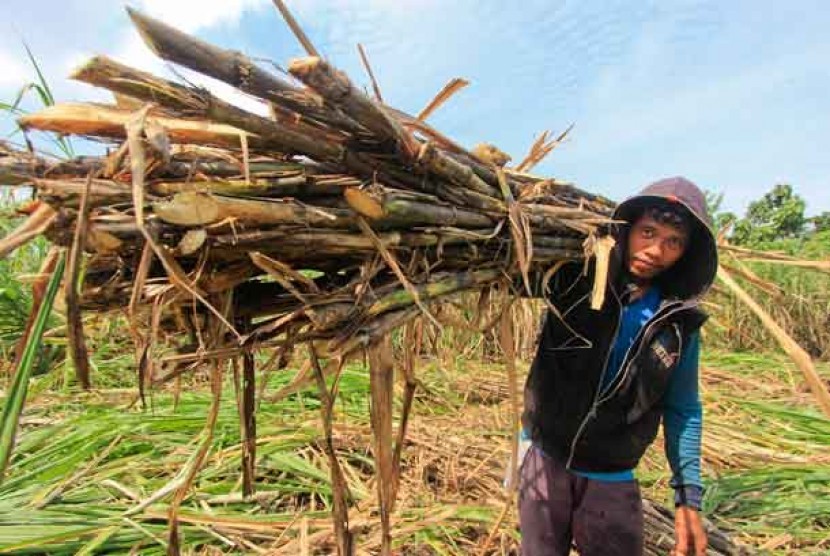REPUBLIKA.CO.ID, JAKARTA -- The Indonesian Chamber of Commerce and Industry (Kadin) has called on the government to evaluate its policy on sugar trade in the border areas to combat the smuggling of sugar over the Indonesia-Malaysia border.
"We want that the government's policy will be able to eliminate illegal trade," Kadin Chairman for border area economic development affairs Endang Kesumayadi said here on Wednesday.
Endang noted that Kadin had information from the public living in the border areas that illegal trade practices still take place along the borders where traders bring sugar from Malaysia and repackage it for distribution in border regions, such as West Kalimantan.
Kadin also urged law enforcement officers to investigate illegal sugar trade cases along the border.
Further, he said the price of sugar in border areas has reached Rp25,000 per kg.
The ministry of trade has assigned Indusri Gula Nusantara (IGN) to be responsible for sugar trade along the border.
Besides observing economic and infrastructure conditions, Kadin and the National Agency for Border Management (BNPP) have also observed conditions of trade on the border, where illegal goods are plentiful.
Endang said that the government should have paid careful attention to illegal trading there.
He explained that the trade ministry had so far failed in overcoming the trade problem along the border by letting prices in the areas skyrocket.
"The government's policies adopted for Jakarta are not suitable for application in border areas. Therefore, we ask the government to provide special treatment for trade activities on the border," he said.
He added that the prices of goods from Java were higher, particularly with regard to logistics costs. In the meantime, the Indonesia - Malaysia trade agreement only regulated a certain quota, which was limited in nature.
For this purpose, Kadin urged the government to provide a quota for sugar imports from Malaysia, whose price was obviously lower than from Java.
"This will also contribute revenues to the state, while preventing illegal practices that had been taking place on the border," Endang said.
In the meantime, Indonesia's sugar output is expected to fall to 2.5 million tons this year, well below its projected consumption of 5.8 million tons, according to the Indonesian Agronomists Association (PERAGI).
"With the imminent shortfall in sugar output, I think it is impossible to achieve self-reliance in sugar production in 2014," PERAGI Chairman Ahmad Mangga Barani said on the sidelines of a national sugar workshop being held at the IPB Convention Center here on Monday.
Low sugar production over the past five years will make it impossible for the country to achieve self-reliance in sugar production next year, he said.
He attributed the low sugar production to the slow expansion of sugarcane plantations, the low use of high-yielding seeds and poor management of sugar production.
On average, a hectare of sugarcane plantation produces 4-5 tons of sugar, he said.
"Our sugar production hit a record high of 2.8 million tons in 2008. But since then, it has continued to fall during the past five years," he said.
"Through these workshop, we suggest that the government issue a policy to encourage national sugar production," he said.
The workshop featured a number of speakers from various ministries, including the agriculture ministry, the trade ministry, and the industry ministry, said Sugianta, of the event's organizing committee.
"The participants in the workshop include policy makers, entrepreneurs, academics, researchers and observers," he said.
He noted that the workshop is expected to issue a recommendation to resolve the nation's sugar problems.


